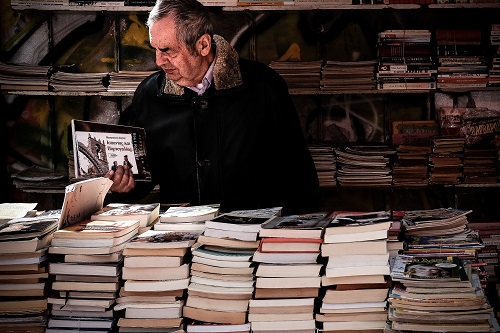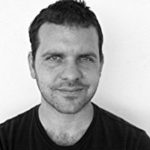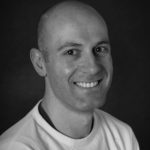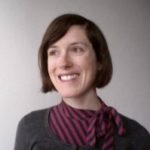
Photo by Aris Sfakianakis
Sarah Ream, commissioning editor of digital publisher The Pigeonhole, talks with two writer descendants of Greek refugees
After reading each other’s writing in The Pigeonhole’s Letters from Greece (2015), a serialised anthology of eleven essays about life in Greece in the crisis and beyond, Stephanos Papadopoulos and Peter Papathanasiou struck up a correspondence with each other and with commissioning editor, Sarah Ream. Stephanos is a Greek-American poet. He was born in North Carolina in 1976 and raised in Paris and Athens. Peter is a Greek-Australian writer. He was born in Florina, a small town in northern Greece, in 1974 and raised in Australia by his adoptive parents.
Sara Ream (SR): How do you describe your family background and heritage?
Stephanos Papadopoulos (SP): I come from a family of artists and craftsmen on my Greek side. My grandfather was a well-known Athenian tailor, my father was an artist and sculptor of the post war School of Paris – the background is Pontic Greek from Samsun (then Amisos) and Crete, where my grandmother was born. In a sort of schizophrenic twist, my American family was Irish and English from North Carolina, and could have stepped from the pages in a novel about the antebellum south. How those two sides coexist within me is a mystery. I was born in North Carolina, left two weeks later and spent the next six years in Paris, then spent the rest of my youth and young adulthood in Athens. Greece is without a doubt my ‘home’ and has always been my place of return, and my axis.
Peter Papathanasiou (PP): My grandparents were Orthodox refugee farmers forced from their home in Asia Minor during the 1923 Population Exchange between Greece and Turkey. At the time, the newly-won lands in the north of Greece needed populating so my family settled in Florina, not far from the borders with Albania and (what is today) the Former Yugoslav Republic of Macedonia (FYROM). My grandfather worked as a toll collector on the outskirts of Florina – every time a local farmer came to town to sell their produce, he collected a small fee. During the Second World War when no one had any money, this fee was often paid with eggs, milk, butter, which my grandfather sometimes pocketed for his family. This is the famous Greek fakelaki, which is normally stuffed with money and greases the local economy (for better and worse). My papou claimed the fakelaki kept his family of six alive during the war. My father worked in a quarry while my mother was a seamstress. These were my biological parents; soon after I was born, I was adopted to a childless couple in Australia, who were also Greeks from Florina. My adoptive parents are actually my biological aunt (my biological father’s sister) and uncle.
SR: How do you describe your writing background?
SP: I studied classical archaeology in college because I was too opinionated for the English department and was bored stiff with horrifying seminars on the English romantic novel. I have always wanted to be a writer. As a child, I dreamt of being a travel writer, and my models were Fermor, Chatwin, and Theroux. But my biggest influence was a combination of Thomas Wolfe, Kerouac, Rilke and Kazantzakis. I began writing a few adolescent novels, and one in college that I abandoned after a chance meeting with Derek Walcott who encouraged me to give it all up for poetry. It was a meeting that I can honestly say ‘changed my life’.
PP: I read and wrote a great deal as a child and adolescent, but then studied law and science in college (university). I was always a better writer than most scientists, which could have been attributed to my legal training or my natural predilection for the art. I’ve since made up for lost time, studying writing at The New School in New York and City University in London. Back when I was growing up, being a writer was a legitimate vocation and an achievable goal; today, it seems so much less respected and harder to attain. But I ignore all that; when you’re a writer, deep down, it’s like breathing. You write because you can’t not write, and not for any external reward or validation. When it’s all put to one side – the politics and economics and war and science and religion – I feel there’s nothing more human, universal or connecting than the simple, unadulterated act of telling a story.
SR: What recent writing have you been working on?
SP: My poetry collection, The Black Sea, was published in 2012 and began after leafing through a series of old photographs I found in my father’s papers. My great grandfather was a tobacco merchant from the Black Sea region, and my grandfather fled before the catastrophe began in 1922, leaving everything behind. Brothers were killed, fortunes lost, exile began. A classic story from the time. I travelled through Turkey and the entire southern coast of the Black Sea just observing and looking for lost connections, fragments, images, churches. It was a kind of pilgrimage for me, and trip into my father’s past. The book emerged as a series of sonnets, or ‘voices’, a cinematic monologue of sorts, with characters from the time speaking from the past, a poetry of ghosts. The Black Sea was recently translated into Greek by Karterina Anghelaki-Rooke. Otherwise, I’m finishing up a new collection of poems and working on some non-fiction.
PP: I’m currently writing a novel about border crossings. The genre is crime and it prominently features characters who are immigrants or refugees. These are also the two main blood types that flow through my veins. Novels are long, enormous, time-consuming beasts, so I also write shorter pieces when the timing is right. I’ve recently published pieces on identity, citizenship, fatherhood, sleep, travel, censorship, refugees and racism.
SR: Living away from your homeland of Greece, do you feel any sense of personal displacement? How does this type of displacement compare to that experienced by your ancestors and other family members? In your opinion, what does displacement do to someone’s identity?
SP: There is no comparison because my own displacement is chosen, but being born between two cultures creates a scenario, both culturally and linguistically, which isolates the individual. One is always a little bit on the ‘outside’ looking ‘in’. For a writer, this distance is a good thing since a slight feeling of alienation focuses the eye and reduces distraction.
PP: I live in a constant state of unbelonging, of alienation, of never quite fitting in. A friend once described me as being ‘too Greek for the Australians, and too Australian for the Greeks’, which is painfully true. It can’t compare to being forcibly displaced from an ancestral homeland; instead, it’s a more modern form of exclusion. Displacement certainly makes me question my identity and embark on a search to define it. Writing is thereby a form of therapy, trying to make sense of the world and how I belong in it. I suspect this is a fairly common feeling these days, even for people who are less ostensibly displaced than me. The question ‘where do I belong, how do I fit?’ is universal. The world is a much smaller place than it used to be, but it’s also more confusing, so the question continues to resonate.
SR: There are clear parallels in your work about the Pontic genocide and population exchange to today’s refugee crisis. How do you feel about the current refugee crisis in Europe? What do you see as being the strongest or most illuminating parallels between now and then? What are the major differences? Why do you think Europe is unable to cope with it effectively? What does the Asia Minor catastrophe have to teach us today?
SP: For me, the parallel was accidental since I wrote The Black Sea before the current refugee crisis began. What is alarming and astonishing to me is that the poem Refugees, which I wrote about the Greeks fleeing Smyrna in 1922, could have been written today about the Syrian refugees fleeing their own, modern day version of hell. The fact that these people are using the same routes, across the same waters in similar unstable boats, is not lost on me. And the French and English and Russian ships, which then stood by and watched women and children drowning in the burning harbour, are the same world powers who today stand idly by hoping the problem will disappear if they look away. Europe has no cultural or political unity and the only interests keeping the union together are economic. The current crisis has highlighted these differences, the latent racisms between North and South Europe, the ineffective bureaucrats that govern from Brussels and Berlin, the complete incongruity between North Europe, the Balkans, Greece, and now also Great Britain following the Brexit vote. What has this taught us? So far nothing but homo homini lupus: man is a wolf to man.
PP: My heart aches to see the current refugee crisis in Europe. As much as I try to see it objectively, I can’t. My grandfather was one of those people forced to flee his homeland. He also faced resistance on his arrival in Greece, although that was from the locals after a state-sanctioned population exchange. Bowed with despair, wearing from months of trekking across Turkey, my grandfather was spat upon by the native Greeks, who were distrustful of his odd dialect. ‘Tourkosporoi!’ they jeered him; ‘Seed of Turk!’ The mere fact he had lived in the Turkish state made his loyalty to Christianity suspicious. By contrast, the current crisis is the opposite: resistance from officialdom, but warmth from the locals at the coalface. It warms my heart to see the Greeks, who have so little after such a period of austerity, give so much to ensure the safe passage of the refugees arriving on their shores. I think Europe struggles to cope with the current crisis because there are so many competing viewpoints. The scale of the crisis cannot be used as an excuse. The crisis one hundred years ago involved approximately 2 million people: around 1.3 million Anatolian Greeks and 500,000 Muslims in Greece. Estimates place the current crisis as involving about one million European arrivals annually by sea and land. When I see the current refugees washing ashore on tiny Mediterranean islands, I don’t just see them – I see their grandchildren.
SR: How does your family history inform or influence you as a writer?
SP: It’s a very strong influence. I’ve always been interested in what I call ‘inherited memory’ and fascinated by what drives us into our past sometimes with more passion than the people who lived through it. It’s all part of the existential voyage. We look for keys that will unlock doors in our own history, for answers to unfinished sentences, and for the people we might have loved. I’m an Atheist but I can still say that it’s a spiritual process for me… let’s call it ‘mystical humanism’, just for fun. This foray into the past has to be done without nostalgia because nostalgia can lead to regret, which is a terrible and debilitating emotion.
PP: The more I find out about my family history, the more I want to learn, which in turn influences my writing. I have border crossings in my blood, so it’s perhaps no surprise I’ve lived in both the US and UK since leaving home in Australia. An economy class seat in a sleek, modern airliner with warm corporate colours cannot compare to a choppy, month-long sea journey below deck, let alone a six-month-long trek across hundreds of miles of Turkish landscape. And yet, so much of what I see and do in these new territories is just a modern version of the same feelings my ancestors felt: questions of identity, nationality and belonging. So even though I’m adding my own unique family history, in a way I’m just living the same story and repackaging it for a modern audience.
Stephanos Papadopoulos
Stephanos Papadopoulos was born in North Carolina in 1976 and raised in Paris and Athens. He is the author of three books of poems: Lost Days, Hôtel-Dieu, and The Black Sea, as well as the editor and co-translator (with Katerina Anghelaki-Rooke) of Derek Walcott’s Selected Poems into Greek (Kastaniotis Editions, 2006). He was awarded a Civitella Ranieri Fellowship for The Black Sea and in 2014 he was awarded the Jeannette Haien Ballard Writer’s Prize selected by Mark Strand.
Peter Papathanasiou
Peter Papathanasiou was born in a small village in northern Greece and adopted as a baby to an Australian family. His writing has been published by The Guardian UK, New York Post, The Age, The Herald Sun, The Canberra Times, SBS, The Huffington Post, The Pigeonhole, Caught by the River, Structo, 3:AM Magazine, Elsewhere Journal, Litro, Overland, Going Down Swinging, and Tincture Journal, and reviewed by The Times Literary Supplement. He has been profiled as a feature writer in Neos Kosmos and is represented by Rogers, Coleridge and White literary agency in London. He holds an MA in creative writing from City, University of London, and divides his time between Australia, London, and a small village in northern Greece.
Sarah Ream
Sarah has a decade’s experience as an editor of narrative non-fiction, fiction and poetry. She’s worked for Birlinn and Polygon, Versal literary journal and Poetry International Rotterdam. She also mentors emerging and established writers through the Scottish Book Trust. As a Pigeon, she is responsible for finding, editing and promoting exceptional new titles for the list.




No Comments Yet!
You can be first to comment this post!